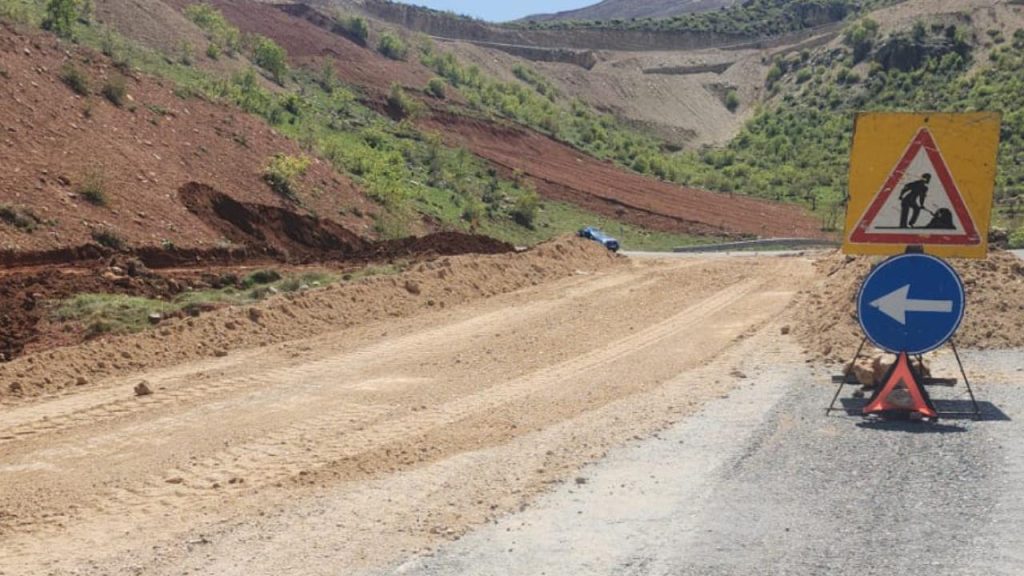After heavy rainfall in Siirt, a province in southeastern Turkey, a road collapsed due to the flooding. The incident occurred in the village of Kusluca, where the road gave way and created a dangerous situation for drivers and residents in the area. The road collapse was a result of the intense rain that caused the ground to become unstable and unable to support the weight of vehicles. Local authorities have been mobilized to assess the damage and find a solution to repair the road to ensure the safety of those living nearby.
The collapse of the road has caused inconvenience for residents in the village of Kusluca, as it has cut off access to essential services and transportation routes. People are unable to travel freely and safely due to the damaged road, causing disruption to their daily lives. The road collapse has also raised concerns about the safety of other infrastructure in the area, as heavy rainfall has made the ground unstable and susceptible to further damage. Local authorities are working to address the issue and restore access to the village as soon as possible.
The road collapse in Siirt is a reminder of the vulnerability of infrastructure in areas prone to heavy rainfall and flooding. Climate change is exacerbating the frequency and intensity of extreme weather events, putting pressure on infrastructure systems that may not be equipped to handle the effects. As a result, communities in regions like Siirt are at risk of experiencing more instances of road collapses and other infrastructure failures in the future. It is crucial for authorities to invest in resilient infrastructure and emergency response measures to mitigate the impact of such incidents.
The road collapse in Siirt highlights the need for greater awareness and preparedness for the impacts of climate change on infrastructure in Turkey. As extreme weather events become more common, it is important for local authorities to prioritize the maintenance and repair of roads, bridges, and other critical infrastructure to ensure the safety and well-being of communities. Investing in infrastructure that is resilient to climate change is essential for minimizing the disruption caused by natural disasters and ensuring the long-term sustainability of communities in the region. By addressing these challenges proactively, authorities can reduce the risk of future road collapses and other damaging incidents.
The road collapse in Siirt has prompted calls for increased investment in infrastructure resilience and emergency response capabilities in the region. It is essential for authorities to prioritize the safety and well-being of residents by taking proactive measures to prevent and address the impact of extreme weather events on infrastructure. By investing in climate-resilient infrastructure and effective emergency response strategies, authorities can protect communities in Siirt and other vulnerable regions from the devastating effects of natural disasters. This incident serves as a wake-up call for the need to build a more sustainable and resilient future for all communities, particularly those at risk of climate-related hazards.
Overall, the road collapse in Siirt demonstrates the urgent need for enhanced infrastructure resilience and disaster preparedness in the face of climate change. As extreme weather events become more frequent and severe, it is crucial for authorities to take proactive measures to protect communities from the impacts of natural disasters. By investing in climate-resilient infrastructure and emergency response capabilities, authorities can safeguard the safety and well-being of residents in Siirt and other vulnerable regions. This incident highlights the importance of building a sustainable future that prioritizes the resilience of infrastructure and the protection of communities in the face of a changing climate.


